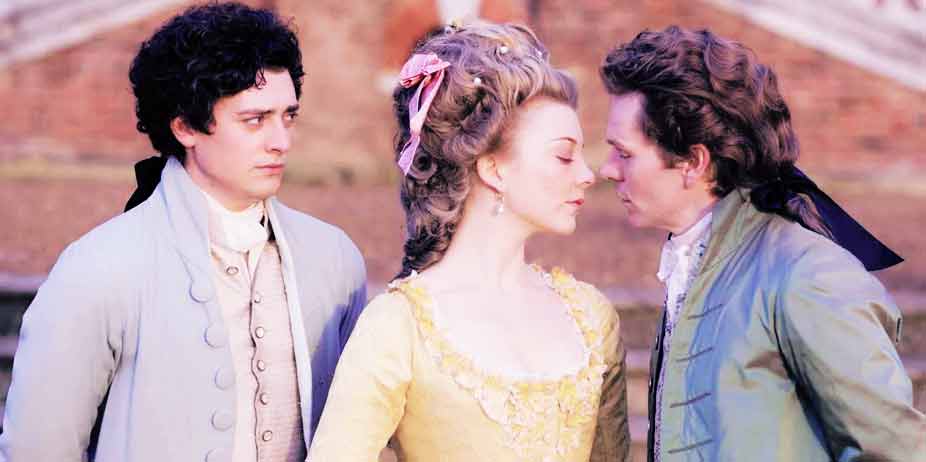 The
Scandalous Lady W (2015)
The
Scandalous Lady W (2015)
It is a terrible thing when an opportunity to explore a story is shortchanged. The historical reality of this tale caused such a tremendous scandal in the period that apparently George Washington requested a copy of the trial transcript. It is a story of loss of innocence and the injustices done to women treated as "property" in the 1700's, but the greater tragedy is the rushed script and one-dimensional characters.
Seven years into her marriage, the life of Lady Seymour Worsley (Natalie Dormer) is falling apart. She scarpers away into the night in the arms of a dashing young military officer, Captain George Bisset (Aneurin Barnard), leaving her beloved child behind. She expects her daughter to be brought to her secretly in London by the maid, only to discover that her husband, Sir Richard (Shaun Evans) has discovered the scheme and... demands retribution. Or more accurately, a large sum of payment in exchange for the inconvenience of his absent wife.
In their younger years, Seymour desired to marry for love. Her greatest desire has always been to please and serve her husband... but it is only months after the wedding that his true predilections come to light. It begins with a desire to spy on her undressing through the keyhole, and escalates into watching her make love to other men. Though repulsed by the idea, Seymour consents ... and much later, when her husband brings her lover to trial, becomes willing to tell the entire truth. The hinges of this swinging door into history are oiled with a sexual scandal so shocking that it was the first genuine "tabloid fodder," but the story is not as concerned with the tawdriness of it, as it is with underlining the great injustice faced by women in the period, who were literally seen as "property." In spilling all of the facts, Seymour was fighting to prove that she was not "worth" the high ransom her husband demanded, as if she were a prized cow on the block.
The cast is excellent, but the plot leaps back and forth in time quite often, expecting the audience to follow along, and in doing so, sacrifices any true character development. We are supposed to be content with George and Seymour holding hands in exchange for a developing true love; with their "love scene" implying that it is more, when we never see them talk, never see them flirt, never see them falling for one another. Likewise, our earliest flashback is Seymour insisting she will marry for love, and Richard rather scoffing at it; the next they are man and wife and have been for months. Where is her love story? How did he persuade her to fall in love with him? How much more effective the story might have been if a more generous time allotment was offered; a miniseries would have been a better vehicle, with time for the audience to grow to like these characters, to feel her anguish and betrayal in what he asks her to do, to then find a purer form of love in Bisset, only to spiral into a tawdry courtroom battle.
As it is, Natalie portrays the innermost emotions of this tormented woman well, while the men are nothing but obscure caricatures, but the film feels too rushed, too scattered, and would be better served with a linear timeline.
Sexual Content:
Many brief glimpses of graphic sex scenes (movement, noises,
partial nudity), about 8 in all, some condensed into a montage. A man watches
behind a keyhole, his hand busy in his trousers. On three occasions, we see his
wife's breasts. Once, he asks his wife if George can watch her bathe through
the window. He hops into bed with them one morning (presumably just to sleep
beside them).
Language:
Several f-words, a couple insults, a Georgian term for the
female genitalia.
